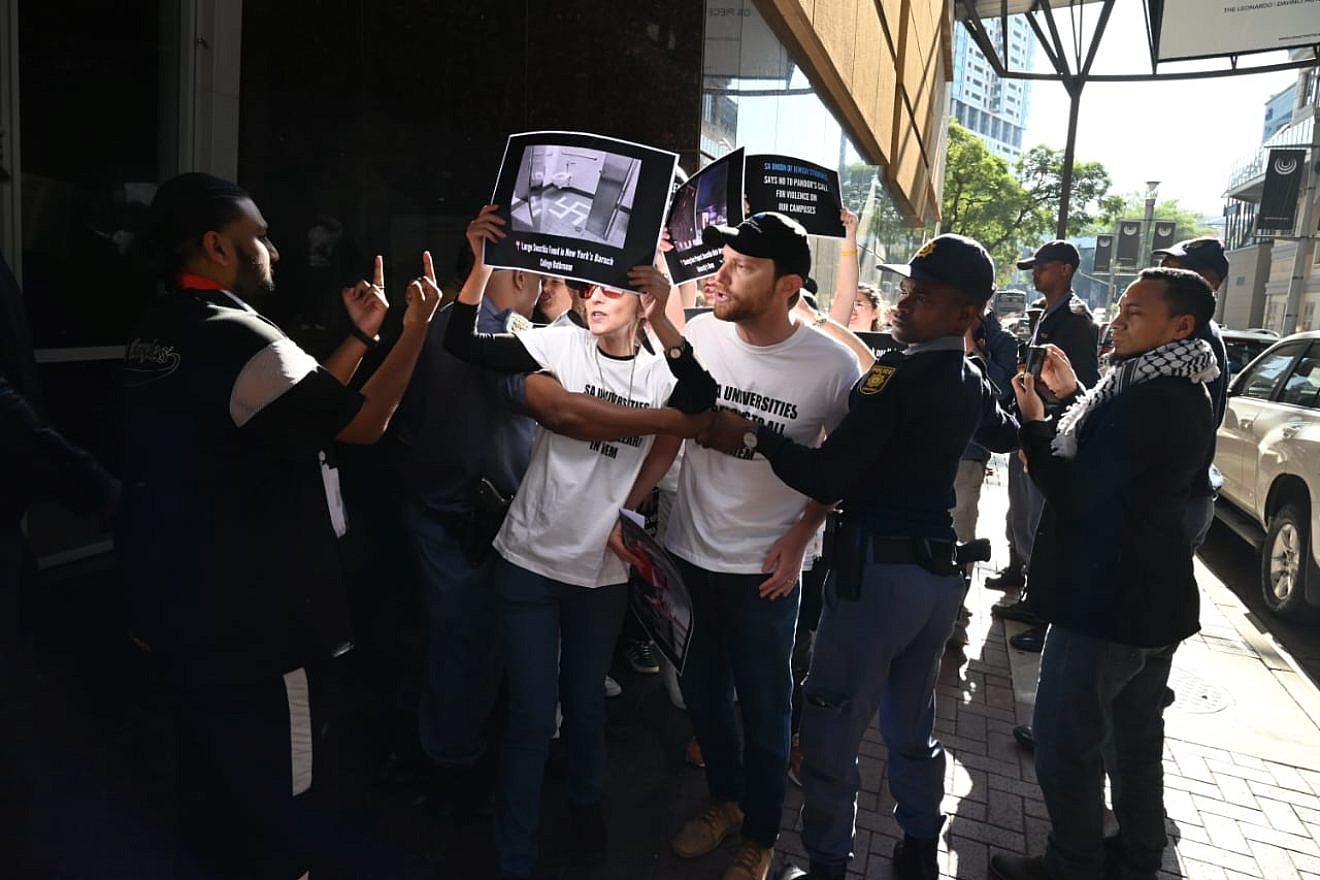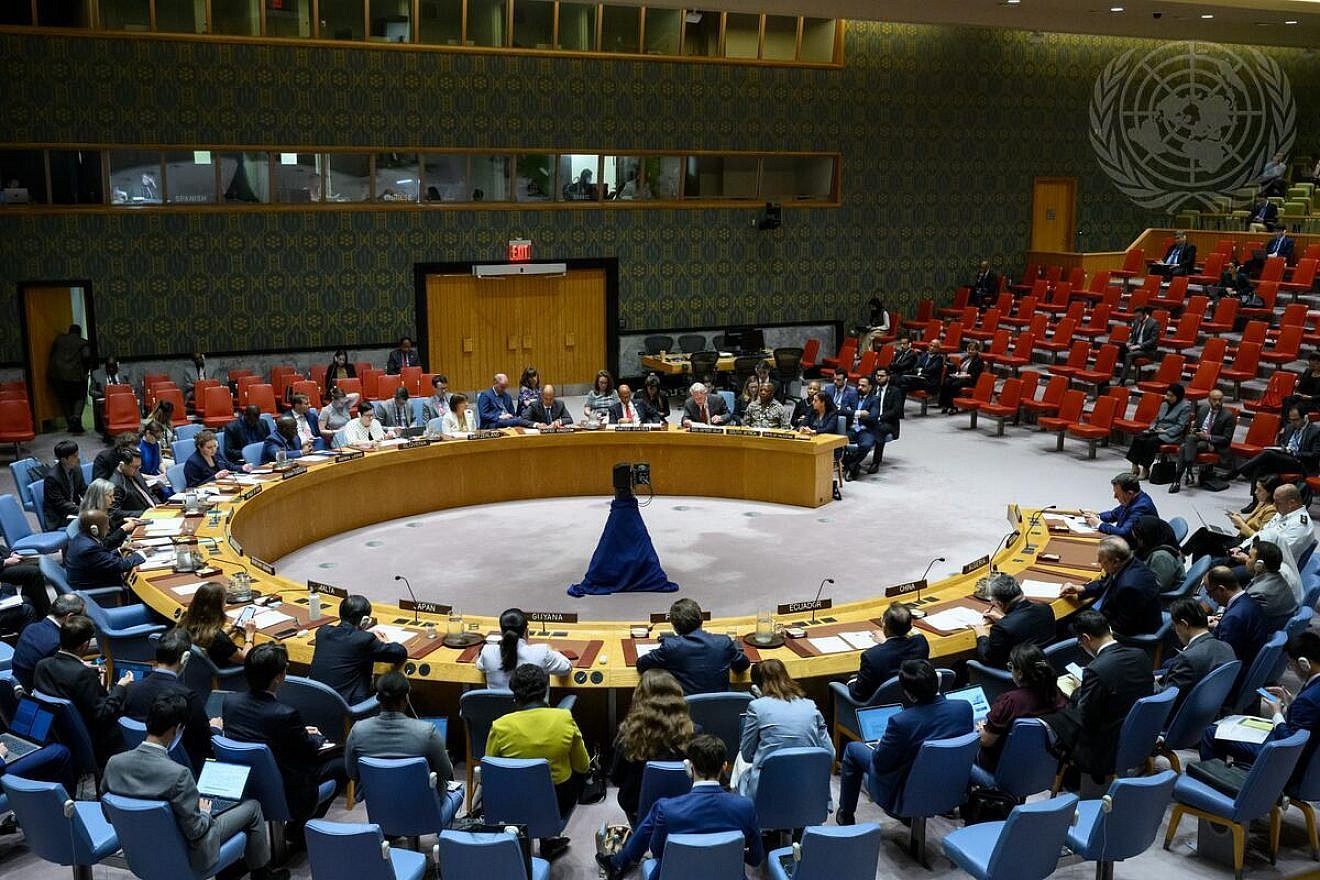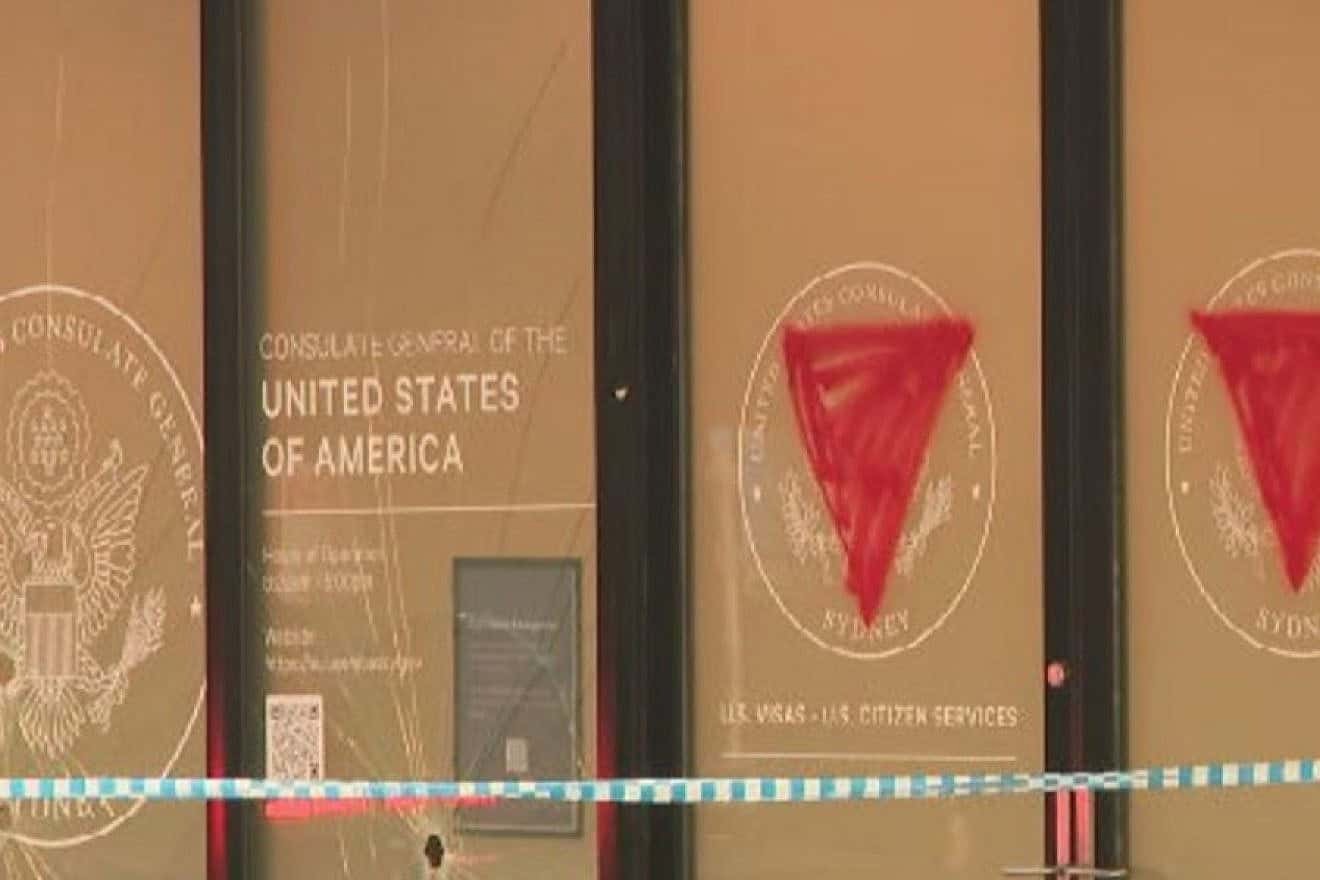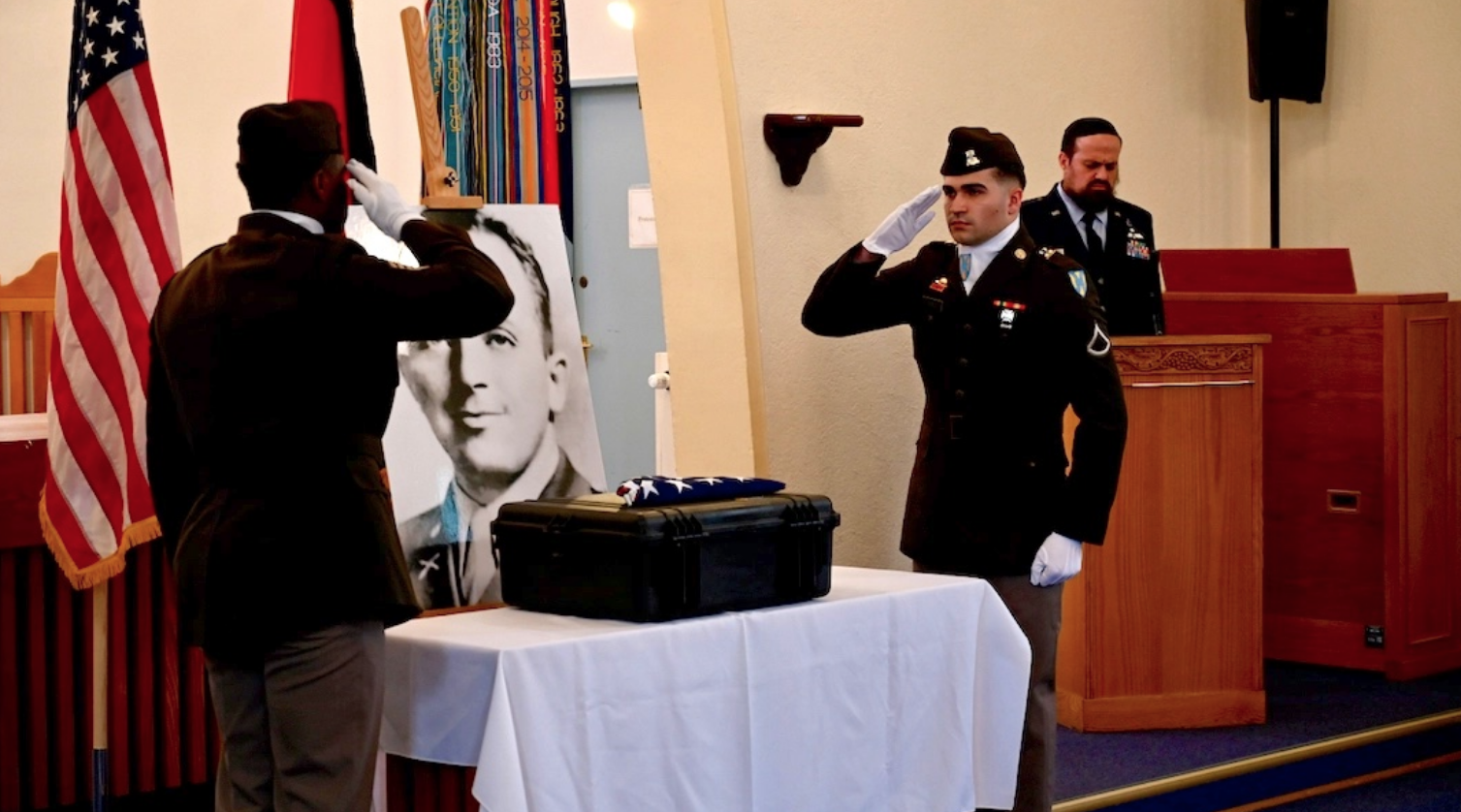(JNS) — South African police forcefully removed a group of Jewish protesters from outside the Sandton Convention Centre in Johannesburg on Friday.
The “Global Anti-Apartheid Conference for Palestine” was taking place inside, attended, by invitation only, by many recognized anti-Israel voices including South Africa’s minister of international relations, Naledi Pandor.
The protesters were members of the South African Jewish Board of Deputies (SAJBD) and South African Union of Jewish Students (SAUJS). They were demonstrating against statements made by Pandor encouraging anti-Israel activity on campus.
Pandor called for “students on university campuses to increase protests, special responsibility to show solidarity with Palestine because of South Africa’s history.”
Wendy Kahn, national director of the South African Jewish Board of Deputies, told JNS earlier last week, “It is beyond belief that a government minister would encourage the kind of anarchistic displays that are being seen on American campuses. That she would willfully put South African Jewish and other students at risk by trying to import the displays of hate and aggression that are plaguing universities in the U.S. that they are struggling to bring under control.
“We know in South Africa that our campuses here are tinderboxes that once they explode, as we have seen in the past with the ‘Fees Must Fall’ protests, are very difficult to get a hold on — we saw destruction of property, a stop of education and even a fatality. Minister Pandor put foreign diplomats at risk when she called for protests outside embassies in South Africa, and now she is endangering our students. It is highly irresponsible, especially in the weeks preceding university exams in South Africa,” Kahn continued.
“It was clear that the delegates attending the conference objected to the presence of Jews on the streets of Johannesburg, and did what they could to intimidate them. Not content with hurling abuse, showing zap signs [giving the finger], they came into our space and physically pulled posters out of one of our protester’s hands, spat in her face, and told her to [f—] off.
“The police were surprisingly compliant with the aggressors and physically relocated the protesters from outside the entrance of the ICC [the Sandton Convention Centre], as our protesters shouted, “No space for Jew-hate,” Kahn said.
The demonstration was limited to 15 people and was within the legal parameters for a public gathering.
Delegates to the conference came from countries including Brazil, Canada, Germany, India, Sri Lanka, Turkey, the U.K. and the U.S. Much like the 2001 UN Conference against Racism and Xenophobia (aka Durban I) that was held in Durban, it was the stage for repeated attacks on the legitimacy of the State of Israel.
Opening the conference, Pandor said, “The Palestinian experience evokes memories of South Africa’s own history of racial segregation and oppression. As oppressed South Africans, we experienced first-hand the effects of racial inequality and discrimination, and we identify fully with the struggle for freedom and self-determination in Palestine.”
Pandor said that for many decades, South Africa benefitted from “international solidarity, which formed one of the four pillars of the struggle against Apartheid. The other three were mass mobilization, armed operations and underground organization.”
She said the inaugural meeting was “rightly hosted in South Africa as a launch pad to consolidate international efforts to bring down apartheid Israel. On a governmental and political level, we would suggest that the conference as a collective, as a matter of priority, consider a role for front-line states, just as the liberation movements in South Africa did in our struggle for freedom and democracy.”
Ronnie Kasrils, former minister of intelligence, told the attendees, “There is no need to pussyfoot around the fact when we have our discussions about the rights of the Palestinians to resist with arms.”
Kasrils also said, “When we talk about the river to the sea, we have got to break Zionist Israel,” and that the Jewish state has nuclear bombs, that “these madmen will let loose nuclear bombs.”
Hamas members Emad Saber and Basem Naim also attended the conference.
The delegates adopted the “Johannesburg Declaration on Israel’s Settler-Colonialism, Apartheid and Genocide: Towards a Global Anti-Apartheid Movement for Palestine.” It includes the following:
“In this first Global Anti-Apartheid Conference for Palestine, we have initiated a process to build on widespread mobilization across the world over decades, to escalate Palestinian solidarity and build the Anti-Apartheid Movement, including that at the World Conference against Racism in Durban in 2001, and the 2005 Palestinian civil society call for boycotts, divestment and sanctions against Israel. …
“We are committed to isolate apartheid Israel by intensifying consumer, academic, sports, arts and cultural boycotts and escalating the campaign for economic and financial sanctions. We will prioritize blocking its shipping routes, campaigning for an arms embargo against Israel, targeting those supporting, funding, supplying weapons to and joining the Israeli Occupation Forces, and expelling Israel from international sporting, cultural and academic bodies.
“Just as the Global Anti-Apartheid movement did not make concessions to the apartheid South African state until the complete dismantling of the apartheid system, we too refuse to concede until the total dismantling of Israel’s settler-colonial project. To that, we are committed and we shall not stop until our purpose is fulfilled.
“Palestine will be free, from the River to the Sea!” the declaration reads.
On Friday, South Africa filed another emergency request at the International Court of Justice calling for additional provisional measures against Israel over its military campaign in Rafah





